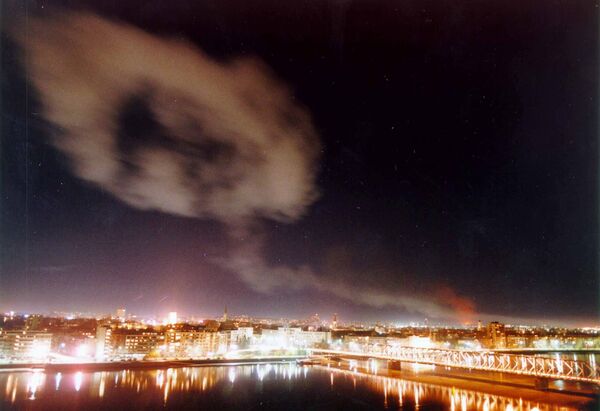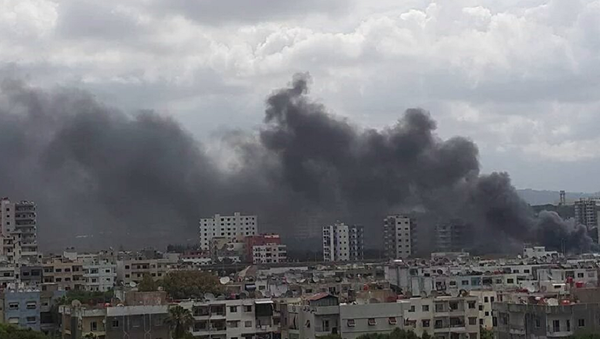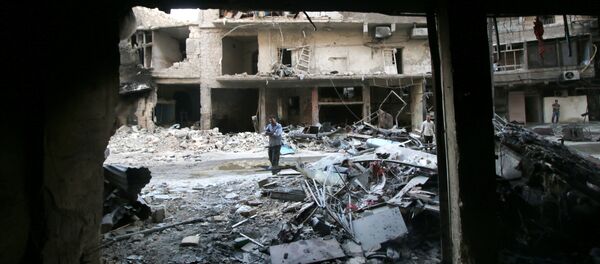Yet 51 State Department diplomats involved in shaping Washington's strategy on Syria recently urged the Obama administration to add a military component to their diplomatic pressure on al-Assad. In other words, they want the White House to send cruise missiles and drop bombs on Damascus-led forces.
The State Department "dissenters" called it "the judicious use of stand-off and air weapons" that is meant to serve as the base of "a more militarily assertive US role in Syria." This way, the memo said, the US-led diplomatic process will become "more focused and hardnose."

Critics say that the 1999 Yugoslavia bombing could not serve as a blueprint or a justification for a similar campaign in Syria. The war-torn Arab country is too diverse to carve out ethnic states in a region plagued by sectarian violence.
"If you map [Syria] out, it's a nightmare. If it comes apart, it could come apart in many different pieces," Charles Kupchan, a professor of international affairs at Georgetown University, told the Atlantic in 2013. "And many of those pieces overlap with conflicts next door."
In this scenario "the most radical elements would quickly overpower the alleged moderates that the United States perhaps erroneously believes that it is supporting, leading to even more atrocities directed against religious non-conformists and minority groups," former CIA counterterrorism officer Philip Giraldi warned.
It was and is the Serbs who brought stability to Yugoslavia and Europe. Just as it is presented Assad who brings stability to Syria.
— Cristenjorgen1 (@cristenjorgen1) 22 мая 2016 г.
Syrian allies, Russia and Iran, are also a major factor to consider. Some say that the parallel with Yugoslavia is "flawed" because Moscow and Tehran will not sit idly while Washington assaults a country it is not even in war with.
Limited military strikes might seem like a viable and relatively safe mechanism to further political ends, but they do not necessarily produce a predictable outcome.
NATO's former supreme allied commander, Wesley Clark, who directed the 1999 operation against Serbia, once cautioned that "you can't always control the script after you decide to launch a limited, measured attack."
The retired general was referring to a 1993 cruise missile strike on Saddam Hussein's intelligence center in Baghdad. The operation hardly made Iraq's late strongman more cooperative.






